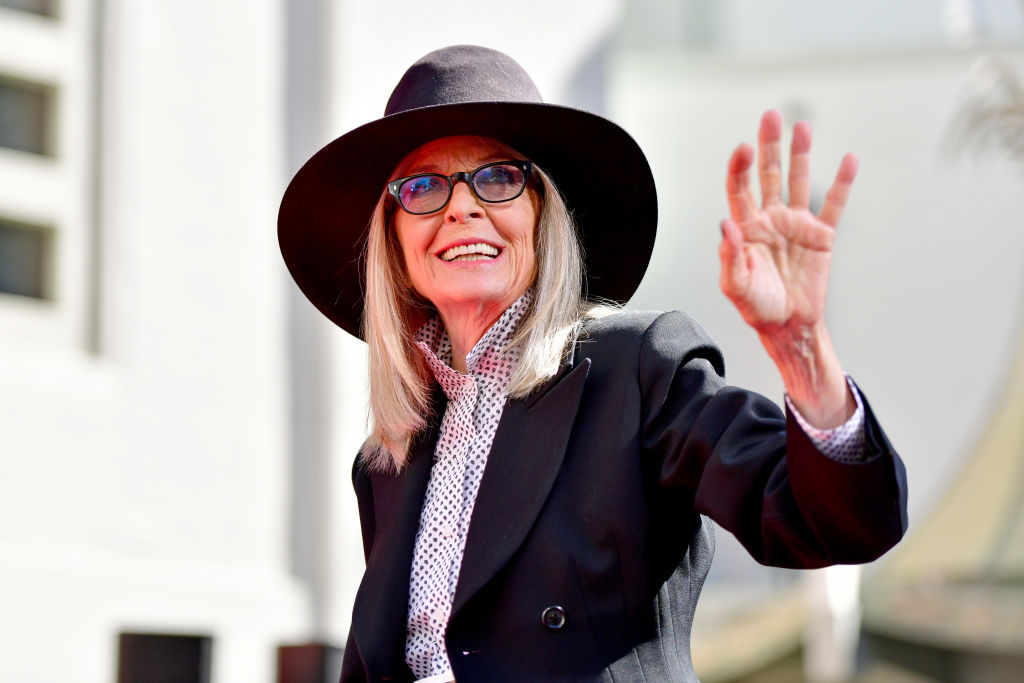The death of the actress Diane Keaton at the age of 79 was greeted with an understandable mixture of sadness and surprise. Sadness, because the death of one of the leading ladies of the Seventies and Eighties (and beyond) robs the film industry of one of its true originals, and surprise, because nobody had any idea that she had been unwell. Yet it is somehow typical of Keaton – perhaps the only woman in history to have dated the wildly disparate likes of Woody Allen and Warren Beatty – to depart the set in a wholly inimitable way. Nothing about her life and career was in any way typical or predictable, so it is equally fitting that her end should be equally confounding, too.
For those of a certain age, Diane Keaton was Annie Hall
For those of a certain age, Diane Keaton was Annie Hall. There are many pleasures to be had from Woody Allen’s Oscar-winning romantic comedy, but perhaps the greatest one was Keaton’s distinctive and unforgettable performance in the lead. Not for her the usual Manic Pixie Dream Girl clichés. Instead, attired in a distinctive wardrobe of fedora hat, tweed jacket and Oxford bags like a Twenties flapper relocated to Seventies New York, Keaton managed to make her Annie both a fashion icon and a fascinating, relatable and, yes, damn sexy protagonist, whose offbeat love affair with Allen’s Alvy Singer made her into one of the most iconic characters ever seen in cinema. She deservedly won an Oscar for the part.
Keaton collaborated with Allen a further seven times, and many of these films – including Manhattan, Love and Death and Sleeper – were among the filmmaker’s best, suggesting that the actress’s work with him resulted in a unique alchemy that has seldom been captured elsewhere. Yet even when she wasn’t working with her one-time lover, she managed to be a fascinating presence on screen when used correctly. She played Al Pacino’s increasingly appalled wife Kay in the Godfather films, supplying those brilliant films with a moral centre, and was superb in the dark Seventies thriller Looking For Mr Goodbar as a bored schoolteacher who drifts into a twilight netherworld of casual and increasingly risky sexual encounters with eventually fatal results.
She suffered from a mixture of typecasting and lazy directors in her latter years, with Nancy Meyers’ romantic comedy Something’s Gotta Give, in which she convincingly battled for the attentions of both Jack Nicholson and Keanu Reeves, perhaps the pick of a mediocre bunch. (It was sadly typical of Hollywood’s inability to view her as anything other than quirky that in the 2017 film Hampstead, Brendan Gleeson’s ornery tramp was her love interest.) Yet she was always an interesting presence on screen, even in films that wasted her, and offscreen she was a bright, vivacious figure, refreshingly unpretentious and down to earth.
Allen, albeit from the perspective of a biased observer, once called her ‘the finest screen comedienne we’ve ever seen’, and he may well have been correct. She could make audiences laugh themselves silly, and then tear up, with a gesture or a flick of her hair, and her premature end has deprived us of many of the great roles that she might have played as an older actress, including, potentially, a last collaboration with Allen. Still, we must be grateful for what we have, and, in Annie Hall in particular, she left her mark on cinematic history in a way that few others have ever come close to.






Comments